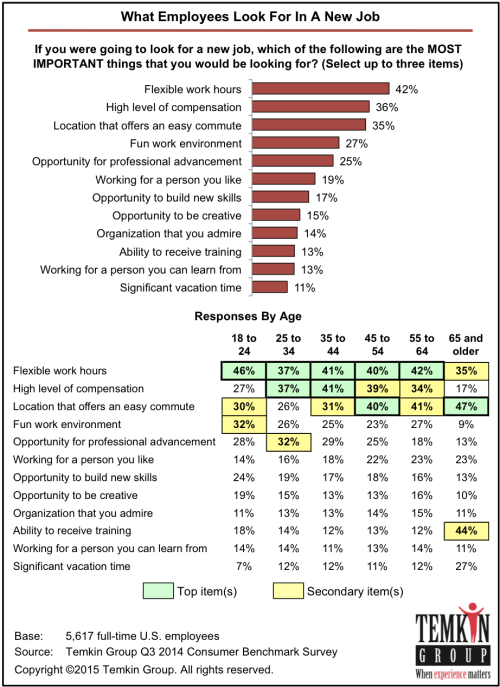What Do People Want in a New Job? Flexibility
July 13, 2015 Leave a comment
As part of our ongoing research around all aspects of employee engagement, we examined the things that people look for in a new job. No surprise, compensation is a key item. But it’s not at the top of the list.
As you can see in the chart below which is based on a study of 5,000 U.S, employees, people are most interested in finding a job that has flexible work hours. Compensation and location and are next on the list, with about the same appeal.
We also examined how the data differs across age groups of consumers. Compared with the overall U.S. average:
- 18- to 24-year-olds want to enjoy life. They selected flexible work hours, fun work environment, and the opportunity to be creative more than any other group.
- 25- to 34-year-olds want career growth. They selected the opportunity for professional advancement and working for a person they can learn from more than any other age group.
- 35- to 44-year-olds want the money. They selected compensation more than any other group.
- 55- to 64-year-olds want meaningfulness. They selected working for a person they like and an organization they admire more than any other group.
- The 65+ group want convenience and training. They selected location, training, and vacation time more than any other group.

The bottom line: People care about more than just compensation